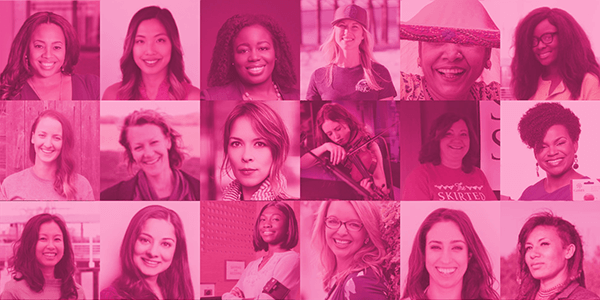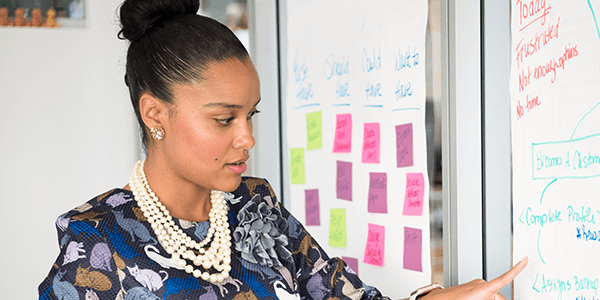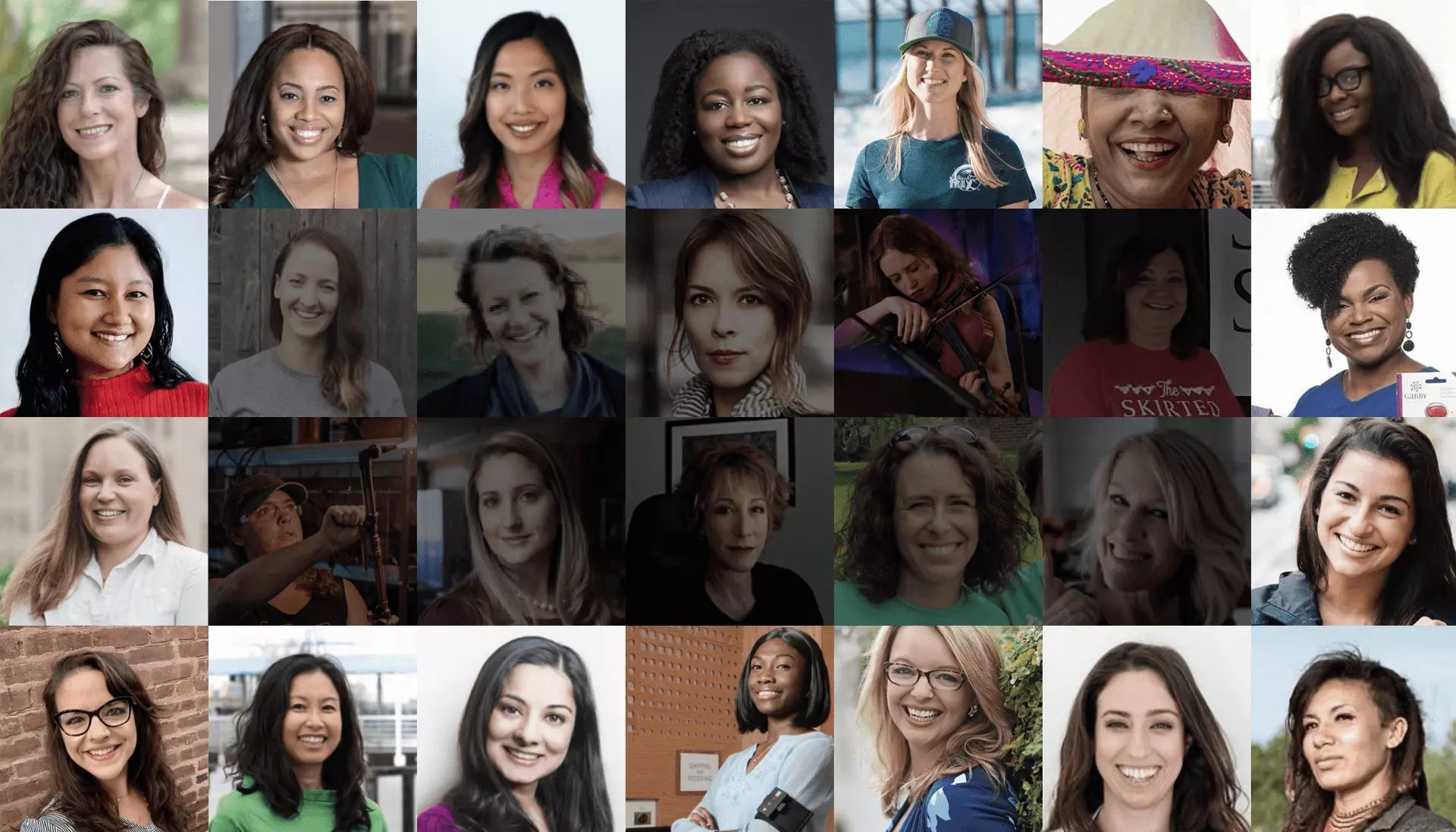

August 18, 2025
July 2025 Startup Grant Awarded to Farmer Analytics LLC

Farmer Analytics LLC
Woman Entrepreneur:
CARLY FARMER
Her Website:
www.farmeranalytics.com
Video Transcript
Jama: Hi everyone, this is Jama with WomensNet and I’m excited to introduce our July, 2025 winners. So thank you so much, and we’ll get right into the interview. We have Carly, with Farmer Analytics, and she’s our startup grant winner. Carly (all the way in Vermont), tell us a little bit about Farmer Analytics.
Carly: Farmer Analytics is something I’ve been thinking about for a long time now and just starting up in the past year. And essentially I test fecal count samples for veterinarians, livestock producers, homesteaders pet owners, and I basically allow them to send me a sample and then they get a result back with a fecal eye count. I’m also branching into consulting and going out to farms and consulting farmers on how they can better manage parasites on their farms. And even more recently moving into offering courses for farmers and home centers as well.
Jama: Can you please tell us a little bit about with the work that you’re doing, what partners or collaborations (I know that you have a couple that you already are working with) how do you go about getting these? So how do you build these partnerships or what have you done?
Carly: Yeah, so I live really, really rurally. So this has been actually the challenge of the year for me. But I can tell you from the very start, I started by partnering with specifically local veterinary offices and that kind of gained some momentum with word of mouth. People were asking like, oh, who’s doing the fecal egg counts? And then they would go directly to me. And then more recently I really entered the online space which has been, in my opinion, a game changer. There’s still word of mouth, but it’s in a different form. And most recently I have been going to more events and meeting influencers that are online who are also really, really passionate about animal health and sustainable farming. And they’re very excited to jump on board with me and collaborate essentially on spreading the word and learning more and teaching their followers, teaching anybody online who, who needs that information, those resources.
So really a lot of networking, going to in-person events I think is so big, especially in this day and age of everything’s online, everything’s quick. And just having real conversations with people- that has opened doors for me immensely. And partnerships- I’ve been able to do some webinars, I’ve been invited to do webinars on these topics and talk more about educating people and giving them information that they really want and need. Within those partnerships, there’s also a lot of mentorship for me specifically. So getting a lot of good feedback on my ideas and how to push them forward and really make them come to fruition. And just having somebody in your corner saying, yes, that’s a great idea. That’s something that a lot of people are looking for- it really helps to keep the momentum and the positivity and the motivation!
Jama(16:21):
Great. Thank you. I have to say many years ago I read a book by Ed Yong. He is a parasitologist, I don’t know if you know of him, but he really got me into parasites! Just understanding parasites and this important work that you’re doing and you’re seeing it under a microscope and you’re seeing how all these environmental things are impacting our animals, our soils, our everything. And to be able to share them and talk about them in plain language like Ed does is really cool. And, you know, your work is just so important, not just to the person that you’re providing these services with, but I love that you’re doing webinars and you’re reaching other people too because that could really have an international impact. So very, very cool. Thank you.
Jama: And Carly, how do you go about developing your business plan? Are there any books or websites or organizations you found helpful?
Carly: Yeah, so my business plan goes way back- probably eight years ago at this point. And this actually started when I started farming. I have my own farm and homestead here, and I met with a business planner and I got all the tips and documents and things to start recording what I needed to. I also took a course called Journey Farmers here in Vermont. And again, this was really focused on managing records, record keeping developing your goals and prioritizing. And I took all of this from those two experiences, and I brought them right into this business idea. And I think the main things I’ve taken away are prioritizing goals and setting one year goals, two year goals, five year goals, ten year goals, and really having that in front of your face at all times so that it keeps you on track, it keeps you seeing the big picture and, and keeps you motivated to get to where you’re hoping to go.
Not everything’s perfect, it’s not always going to hit your goals. But it’s a good thing to have in front of you at all times. Another thing that I would suggest is spending a lot of time listening to other women entrepreneurs. One thing I spent a lot of time doing is listening to podcasts. People who have created courses, people who’ve sold courses and been successful with those people who have started businesses from the ground up. Too many podcasts to name which ones because I’m all over the place with them. But listening to other people’s experiences and kind of going back to my first talk about other people like influencers and listening to them too and, and taking their advice and putting that into your business plan. And I will say I have gotten a lot of good resources off of the WomensNet website as well. I’ve been all over that looking at those and those are super helpful, but there’s tons of information online. And I think my main takeaway for my business plan was just having a goal, but, but allowing myself to ebb and flow as time goes on and be able to adjust as I go and make sure that stays feasible and realistic.
Jama: And that’s kind of a really big deal, especially in your field because it’s not one that always comes to mind. Like, you have all this knowledge, but how do you build a business around that? And so that’s, that’s very nice. Thank you so much for sharing!
Carly: Sorry, I wanted to add one more thing.
Jama: Yes, please do!
Carly: I think the big thing there for me because my industry is so niche is finding a gap or a need and focusing on that because yeah, it’s a pretty small niche!
Jama: Yes. But a very cool one. Congratulations Carly! We’re so excited about everything you’ve already been doing, and that you’re going to continue to do, especially with this additional grant funds. And so thank you so much and we appreciate you taking the time.

















